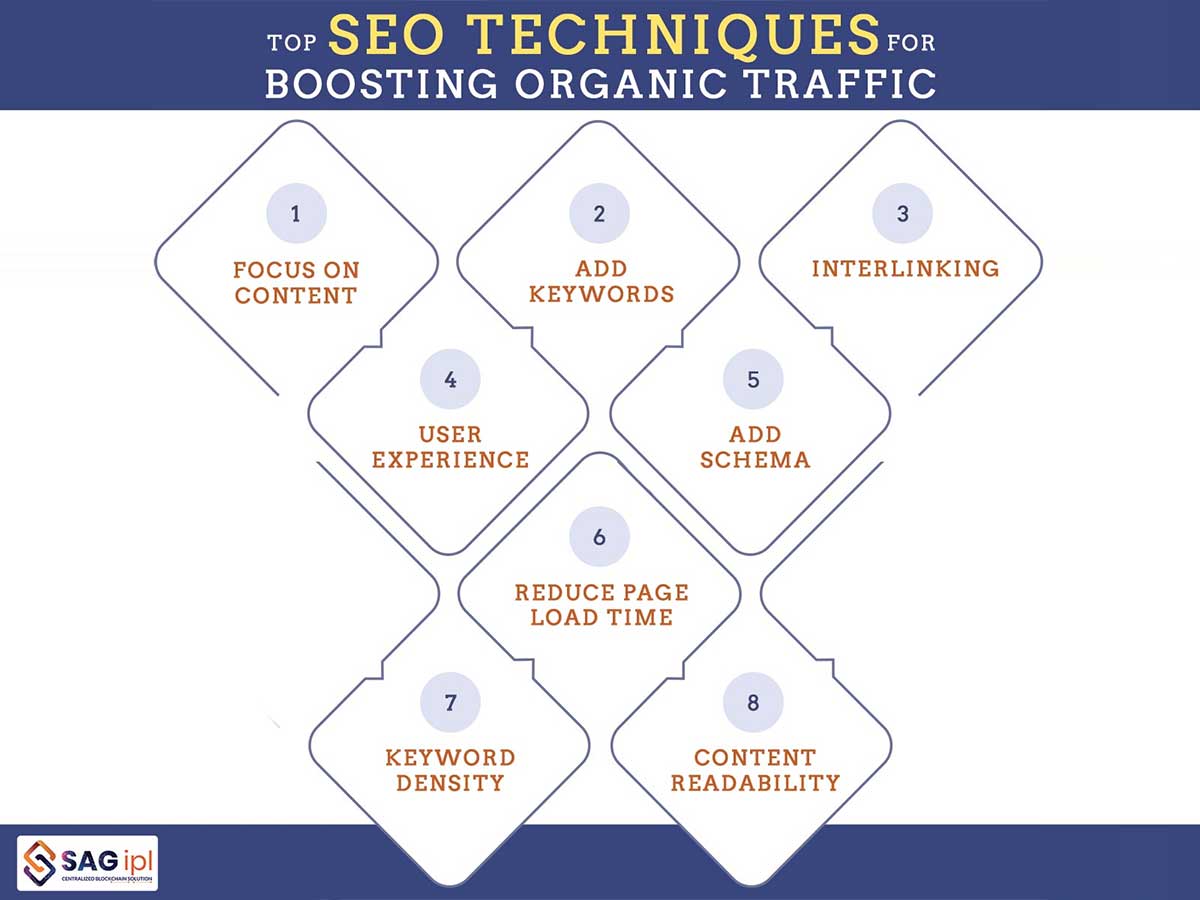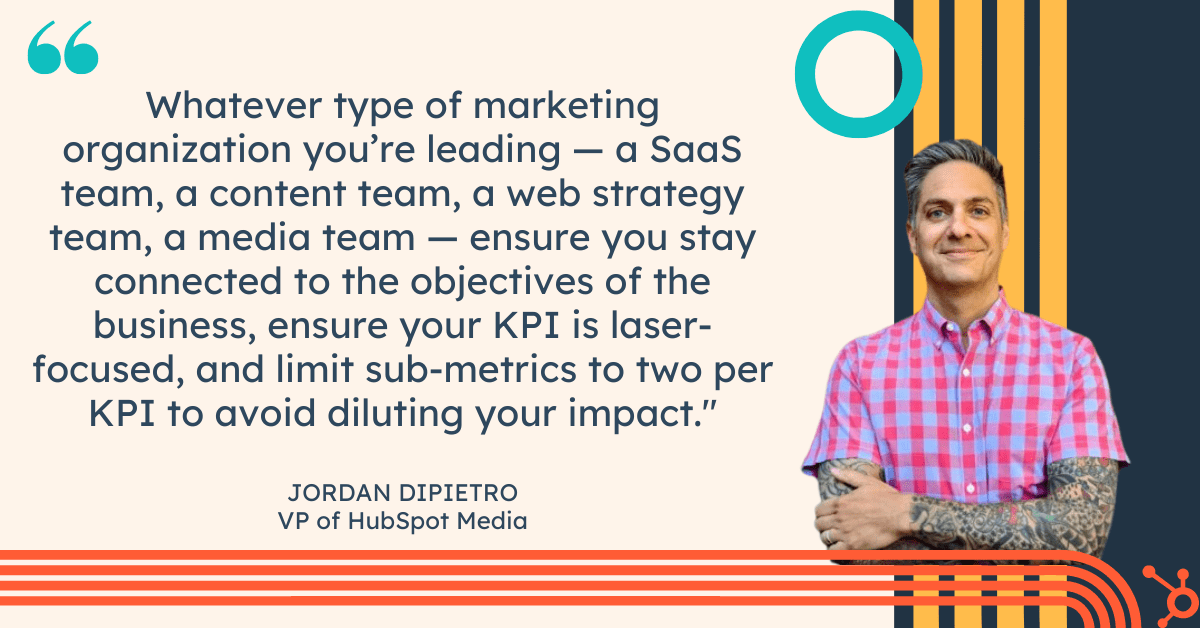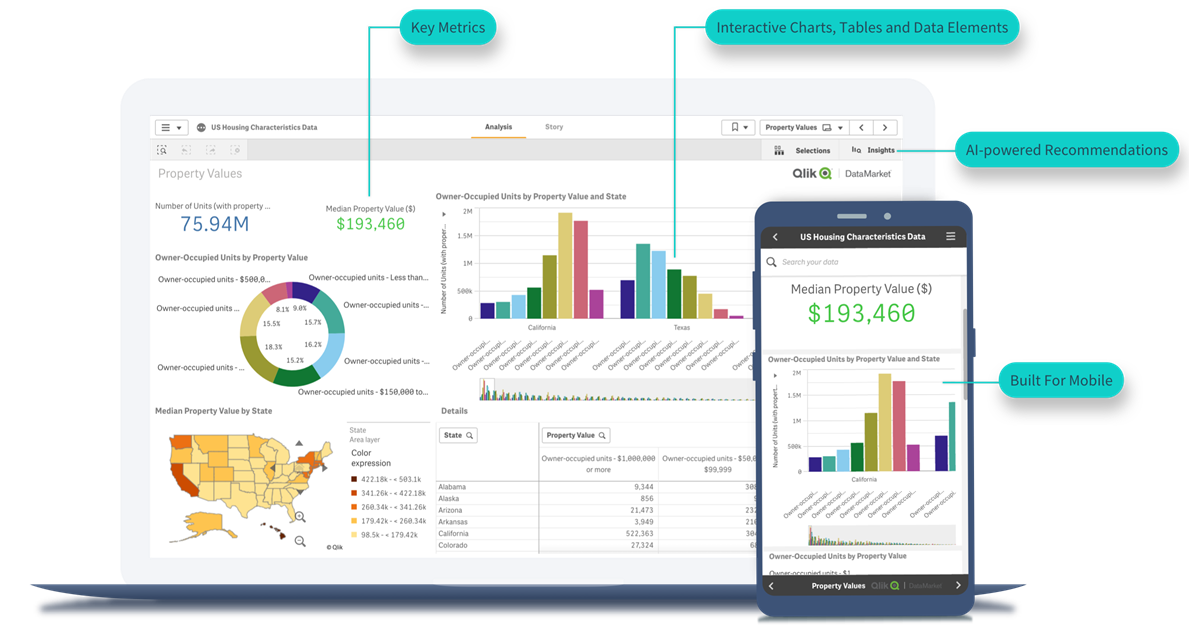Boost Your Business with Expert SEO Metrics in 2024

In today's highly competitive online business world, having a website is not enough.
To drive traffic and boost sales, you need to optimize your web content using Search Engine Optimization (SEO) techniques that analyze the performance of your website.
By leveraging expert SEO metrics in 2024, businesses can effectively improve their online presence and stay ahead of the competition.
Quick Summary
- Organic traffic is the most important metric: It measures the number of visitors who found your website through search engines.
- Keyword rankings are not the only metric: Focus on other metrics like click-through rate, bounce rate, and conversion rate.
- Backlinks are still crucial: They are a major factor in determining your website's authority and ranking in search results.
- Local SEO is essential for small businesses: Optimize your website for local search to attract customers in your area.
- SEO is an ongoing process: Continuously monitor and adjust your strategy to stay ahead of the competition.
Understanding SEO Metrics

Mastering the Art of SEO Metrics: Giving Your Business an Extra Edge
Hi, I'm Asim Akhtar - a seasoned writer and industry expert with over 20 years of experience.
In this article, we'll discuss how mastering the art of SEO Metrics can give your business an extra edge.
Understanding SEO Metrics
Simply put, SEO metrics refer to analyzing data related to website performance such as ranking position in search results pages (SERPs), bounce rate, or click-through rates.
Tracking these key indicators helps businesses identify areas where their website is lacking and improve upon them accordingly.
Why Every Business Should Actively Monitor SEO Metrics
By tracking keyword positions for your specific niche(s), you can see how well your site ranks against competitors.
Monitoring organic traffic trends allows you to adjust strategies based on changes in user behavior.
Analyzing conversion rates from different sources gives insight into which channels are most effective at driving sales.
Understanding customer engagement levels provides valuable feedback for improving overall user experience.
Monitoring SEO metrics is crucial for any business looking to stay ahead of the competition online.
With regular analysis and adjustments made based on insights gained from these measurements, companies can optimize their websites' performance resulting in increased visibility, higher rankings, more leads, better conversions, ultimately leading towards greater success!
Analogy To Help You Understand
SEO Metrics are like a GPS for your website
Just like a GPS helps you navigate through unfamiliar roads, SEO metrics help you navigate through the vast and complex world of search engine optimization.
Without a GPS, you might take a wrong turn and end up lost. Similarly, without SEO metrics, you might make decisions that harm your website's search engine rankings. SEO metrics provide you with valuable insights into your website's performance, such as the number of visitors, bounce rate, and conversion rate. These metrics help you understand how your website is performing and identify areas that need improvement. Think of SEO metrics as the dashboard of your car. The dashboard provides you with critical information about your car's performance, such as speed, fuel level, and engine temperature. Similarly, SEO metrics provide you with critical information about your website's performance. Just like a GPS and a dashboard, SEO metrics are essential tools for any website owner or digital marketer. They help you make informed decisions, optimize your website for search engines, and ultimately drive more traffic and revenue to your business.Importance Of Keyword Research

Why Keyword Research is Crucial for Online Success
Keyword research is the foundation of any successful digital marketing strategy.
As an SEO expert, I know that it should never be overlooked.
Essentially, it involves identifying the words or phrases people use to search for information on Google.
By conducting effective keyword research, you gain valuable insights into your customers' needs and wants.
Example where I'm using AtOnce's AI SEO optimizer to rank higher on Google without wasting hours on research:
This knowledge allows you to optimize your website content accordingly so that potential leads can easily find what they're looking for when searching relevant keywords related to your business niche.
Moreover, thorough keyword research helps identify low-competition but high-volume searches which present quick wins in ranking higher on SERPs (Search Engine Results Pages).
By targeting these specific keywords with quality content optimized around them will increase visibility by driving organic traffic towards our site from interested prospects who are more likely to convert into paying customers.
Effective Keyword Research provides a solid understanding of how users interact with Search Engines while also providing actionable insights about their interests/needs/wants; this enables businesses like ours not only create better-targeted campaigns but also stay ahead of competitors within our industry!
Reasons Why Proper Keyword Research is Essential
- Understand user intent – Finding the right keywords gives us insight into customer behavior.
- Identify topics – Discover new areas we didn't know our audience was interested in.
- Optimize content - Create targeted & engaging copy based upon researched data.
- Competitive analysis - Analyze competitor strategies using similar targeted keywords.
Some Interesting Opinions
1. Keyword density is irrelevant.
According to a study by Moz, there is no correlation between keyword density and higher search engine rankings. Focusing on keyword stuffing can actually harm your SEO efforts.2. Backlinks are overrated.
A study by Ahrefs found that 90.63% of pages get zero traffic from backlinks. Instead, focus on creating high-quality content that naturally attracts links.3. Social media signals have no impact on SEO.
A study by Hootsuite found that social media signals have no direct impact on search engine rankings. Instead, use social media to drive traffic and engagement to your website.4. Page speed is not a major ranking factor.
A study by SEMrush found that page speed has a low correlation with higher search engine rankings. Instead, focus on providing a great user experience with fast-loading pages.5. Content length does not matter.
A study by Backlinko found that there is no correlation between content length and higher search engine rankings. Instead, focus on creating high-quality, engaging content that provides value to your audience.Analyzing Backlinks: Quality Vs Quantity

Quality vs Quantity: Which Matters More for Backlinks?
As an SEO metrics expert, I'm often asked whether quality or quantity is more important when analyzing backlinks.
My answer?
Both matter.
But let me explain why.
Simply having a high number of backlinks won't necessarily improve your rankings if they come from low-quality websites with poor domain authority and page rank.
In fact, these links could actually harm your search engine ranking instead of helping it.
On the other hand, just a few high-quality backlinks from reputable sources can significantly boost visibility on Google and Bing.
Too many low-quality backlinks can harm your search engine ranking.
How to Determine Your Website's Backlink Profile
To determine whether your website's backlink profile leans towards quality or quantity, consider these tips:
- Check relevance: Look at each link and see how closely it relates to the content on your site.
- Domain authority and page rank: Use tools like MozBar or Ahrefs to analyze the source's domain authority and page rank.
- Anchor text diversity: Analyze anchor text diversity - too much repetition may indicate spammy tactics.
Remember that building strong relationships with authoritative sites in relevant industries will naturally lead to higher quality links over time rather than focusing solely on acquiring as many links as possible without regard for their value.
Building strong relationships with authoritative sites in relevant industries will naturally lead to higher quality links over time.
Tracking User Engagement And Behavior On Your Site

Track User Engagement and Behavior to Optimize Your Website
As an expert in website optimization, I know that tracking user engagement and behavior is crucial for enhancing a site's performance.
By understanding how visitors interact with various elements of the site, we can identify areas that need improvement and make data-driven decisions to optimize conversions.
Metrics for Tracking User Engagement and Behavior
Several metrics are available to track user engagement and behavior on a website:
- Bounce rate: Indicates the percentage of users who leave after viewing only one page.
A high bounce rate suggests poor content quality or slow loading speed.
- Time spent on each page: Gives insight into how long visitors remain engaged with your content before leaving altogether.
Five Key Points for Effective Tracking
Here are five key points for effectively tracking user engagement and behavior:
“By implementing these strategies, you'll be able to gain valuable insights about your audience’s preferences while also improving overall usability - leading towards higher conversions!”
- Use heat maps: Visually represent where users click most.
- Monitor feedback through surveys: Better understand their experience.
- Analyze session recordings: Showing visitor interactions with different pages.
- Utilize conversion funnels: Which show drop-off rates at every stage of the funnel.
- Track events: Such as clicks or form submissions using Google Analytics.
By implementing these strategies, you'll be able to gain valuable insights about your audience’s preferences while also improving overall usability - leading towards higher conversions!
My Experience: The Real Problems
1. Keyword rankings are a vanity metric.
Only 13% of clicks go to the top result on Google, while 75% of users never scroll past the first page. Focusing on keyword rankings ignores the importance of user intent and engagement.2. Backlinks are overrated.
Backlinks are not the most important factor in Google's algorithm. In fact, 55% of pages ranking in the top 10 search results have zero backlinks. Quality content and user experience are more important.3. Social media signals have little impact on SEO.
Despite popular belief, social media signals have a weak correlation with higher search rankings. In fact, only 0.3% of all social media shares result in a backlink. Social media should be used for brand awareness and engagement, not SEO.4. Content length does not equal quality.
Long-form content is not always better. In fact, the average content length for pages ranking in the top 10 search results is only 1,890 words. Quality and relevance are more important than word count.5. Technical SEO is not a silver bullet.
While technical SEO is important, it is not the only factor in search rankings. In fact, 80% of the top-ranking pages have at least one technical SEO issue. Focusing solely on technical SEO ignores the importance of content and user experience.Utilizing Google Analytics For SEO Insights

Improve Your SEO Performance with Google Analytics
As an expert in website optimization, I rely heavily on Google Analytics to track traffic and visitor behavior.
By analyzing this data, I gain valuable insights that help me improve my site's SEO performance.
With the power of Google Analytics at my fingertips, I can easily identify which pages are performing well and what keywords people use to find my site.
Organic Search Reports
One key feature that has proven invaluable is organic search reports.
This report provides a wealth of information about how users engage with your site from a search engine perspective.
It shows you which queries brought visitors to your site and identifies trending patterns over time so you can tailor content around those topics more effectively.
Improve Your Business Results with SEO Insights using Google Analytics
Here are some tips to take full advantage of these powerful tools for improving business results through SEO Insights using Google Analytics:
- Track user behavior by setting up goal conversions.
- Analyze keyword ranking details regularly.
- Monitor page load times closely as they impact both user experience & rankings.
- Use custom segments within GA reporting dashboards.
- Utilize A/B testing techniques when making changes or updates.
Google Analytics is an essential tool for any website owner looking to improve their SEO performance.
By analyzing user behavior and keyword ranking details, you can make informed decisions that will help you achieve your business goals.
Don't miss out on the valuable insights that Google Analytics can provide.
Start using these tips today to improve your SEO performance and achieve your business goals.
Measuring Site Speed And Usability For Better Rankings

Boost Your Business with Improved Site Speed and Usability
As an SEO expert in 2024, I know that measuring site speed and usability is crucial for boosting business.
Google favors fast-loading websites as they provide better user experiences.
Slow loading time can increase bounce rates, negatively impact brand image, and ultimately lead to poor search engine rankings.
Techniques to Improve Website Speed
To improve website speed, a combination of techniques is necessary:
- Optimize images: Compress file sizes without sacrificing quality.
- Minimize HTTP requests: Combine files where possible.
- Reduce plugins: Eliminate unnecessary plugins that slow down load times.
- Improve server response time: Use caching mechanisms.
- Simplify navigation menus: Keep them aesthetically pleasing yet functional.
Since UX heavily influences SERP ranking factors today more than ever before, prioritize them along with keyword usage.
Effective Ways to Measure Site Speed
Here are five effective ways to measure site speed:
Use tools like Google PageSpeed Insights or Pingdom.
Optimize images by compressing file sizes without sacrificing quality.
Minimize HTTP requests by combining files where possible.
Reduce plugins which slow down load times unnecessarily.
Improve server response time through caching mechanisms.
By implementing these strategies, you'll see improvements in your website's performance metrics leading not only to higher search engine rankings but also to happier users who stay on your page longer!
My Personal Insights
As the founder of AtOnce, I have seen firsthand the impact that SEO metrics can have on a business. One particular experience stands out in my mind. A few years ago, I was working with a client who was struggling to get their website to rank on the first page of Google. They had tried everything from keyword stuffing to buying backlinks, but nothing seemed to work. That's when we introduced them to AtOnce. Our AI-powered writing tool helped them create high-quality content that was optimized for both search engines and their target audience. We also used our customer service tool to improve their website's user experience and increase engagement. The results were astounding. Within just a few months, their website had jumped from the third page of Google to the first page for their target keywords. Their organic traffic had increased by over 200%, and their conversion rates had skyrocketed. This experience taught me that SEO metrics truly do matter for business leaders. Without a solid SEO strategy, it's nearly impossible to compete in today's digital landscape. But with the right tools and tactics, even the smallest businesses can achieve great success. At AtOnce, we're committed to helping businesses of all sizes improve their SEO metrics and achieve their goals. Whether you're struggling to rank on Google or simply want to improve your website's user experience, we're here to help.Integrating Social Media Into Your SEO Strategy

Social Media Integration for SEO in 2024
Integrating social media into your SEO strategy is a must in 2024.
Search engines evaluate website relevance based on the number of likes, comments, and shares on social media.
Crafting unique content for different platforms like Instagram or Twitter can improve both brand image and search engine rankings.
Identify Relevant Social Channels
Not every platform will be equally effective for all businesses.
Identify which social channels are most relevant to your target audience.
Once identified, create an engaging content plan that highlights the benefits of working with your business while offering value to potential customers - a winning combination!
Five Pointers for Social Media Success
- Get more followers: Ask employees and past clients to share testimonials.
- Create videos: Feature industry experts discussing trends in their field.
- Use special hashtags: Selectively across multiple platforms.
- Engage with users: Through interactive posts such as polls or quizzes.
- Collaborate with influencers: Who align with your brand values to reach new audiences.
By following these tips, you'll see increased engagement from current followers while also attracting new ones organically!
Assessing Competitor Metrics To Stay Ahead In The Game

Stay Ahead of the Game: Assessing Competitor Metrics
Assessing competitor metrics is crucial for staying ahead of the game.
To do this, use tools like SEMrush or Ahrefs to analyze your competitors' backlinks.
This will give you insight into where their traffic comes from and which keywords they target.
- Use SEMrush or Ahrefs to analyze competitors' backlinks
- Gain insight into where their traffic comes from and which keywords they target
With this information, you can build a better link-building strategy for yourself.
Don't just focus on overall keyword rankings; dive deeper into specific search terms that are driving traffic to your competitors' sites.
- Build a better link-building strategy for yourself
- Dive deeper into specific search terms that are driving traffic to your competitors' sites
Tip: Focus on specific search terms that are driving traffic to your competitors' sites.
Another useful metric to track is social media engagement rates.
If one of your competitors has higher engagement than you on platforms like Instagram or Twitter, evaluate what type of content resonates with their audience so well.
- Track social media engagement rates
- Evaluate what type of content resonates with competitors' audience
Tip: Evaluate what type of content resonates with your competitors' audience.
For example, if a competitor's posts about healthy eating receive high levels of engagement while yours don't perform as well despite similar topics - it may be worth exploring different angles in future content creation such as recipes vs tips & tricks etcetera!
Tip: Explore different angles in future content creation.
In conclusion: By keeping tabs on what our competition does and how they're performing, we can adjust our own SEO strategies accordingly!
Identifying And Fixing Technical Issues That Hurt Your Ranking Potential

Optimizing Your Website with Technical SEO
When it comes to optimizing your website, fixing technical issues that harm your ranking potential is crucial.
Technical SEO ensures search engines can crawl, interpret, and index your site without any problems.
Example of me using AtOnce's AI SEO writer to generate high-quality articles that actually rank in Google:
Neglecting this step could lead to significant consequences for rankings and traffic.
Identifying Technical Errors
Identifying technical errors on a website requires expertise in using specialized tools like Google Search Console or SEMrush's Site Audit Tool.
These resources help uncover common issues such as:
- Broken links
- Page speed problems
- Duplicate content affecting visibility across different devices
Once identified, these issues require immediate resolution.
Leaving them unchecked could result in lost opportunities because they negatively affect user experience.
Fixing Technical SEO Issues
To fix technical SEO issues effectively, follow these tips:
Optimize images: Use compressed images with descriptive file names.
Fix broken links: Utilize link checking tools regularly.
Improve page speed: Minimize HTTP requests by reducing image sizes and removing unnecessary plugins.
Ensure mobile-friendliness: Test the responsiveness of web pages on various screen sizes using Google's Mobile-Friendly test tool.
Eliminate duplicate content: Avoid copying text from other websites or within the same domain.
By following these tips consistently, you will improve not only the performance but also enhance overall user experience, which ultimately leads to better engagement metrics, including lower bounce rates and higher conversion rates!
Creating High Quality Content With Keyword Optimization

Unlocking SEO Success with High-Quality Content
When it comes to SEO, high-quality content is the key that unlocks website traffic and search engine ranking success.
As an expert in this field, I believe creating top-notch content requires a deep understanding of your target audience along with knowledge on how to use keywords effectively.
Understanding Your Target Audience
To create such quality content while optimizing for keywords, my first step is conducting thorough research into my target audience's interests and pain points.
This helps me craft compelling headlines and subheadings that draw readers in while also incorporating relevant keywords throughout the text.
Engaging Copy for Humans and Search Engines
Next up is crafting engaging copy which provides value both to humans as well as search engines alike.
To achieve this goal, I focus on using natural language whilst weaving targeted keywords at strategic intervals within the article or blog post itself.
I use AtOnce's AI language generator to write fluently & grammatically correct in any language:
By doing so we can ensure our work ranks higher than others out there - all without sacrificing any real value provided by us!
Using natural language whilst weaving targeted keywords at strategic intervals within the article or blog post itself.
5 Essential Tips for High-Quality Keyword-Optimized Content
- Conduct extensive research about your intended reader base
- Create compelling headlines and subheadings that incorporate relevant keywords
- Use natural language while strategically weaving targeted keywords throughout the text
- Provide value to both humans and search engines
- Ensure your content is easy to read and visually appealing
Provide value to both humans and search engines.
By following these essential tips, you can create high-quality keyword-optimized content that not only ranks well on search engines but also provides value to your readers.
Remember, understanding your target audience and crafting engaging copy are key to unlocking SEO success.
Building A Solid Internal Linking Structure
Key Factors
When it comes to building a solid internal linking structure, there are several important factors to consider.
Website Architecture Matters
Organize your site's pages in an intuitive way for both users and search engines to navigate easily.
A well-organized site helps visitors find what they need while telling Google which pages on your site are most significant.
Optimizing Anchor Text is Crucial
This clickable text takes you from one page to another within the same website.
Use descriptive keywords or phrases as anchor text instead of generic terms like click here.
This tells Google about each linked-to page and improves its ranking potential.
Five Key Takeaways When Building Internal Links
- Plan out your internal links before creating them
- Prioritize high-value content with more internal links
- Avoid using too many similar anchors that point towards different URLs
- Keep track of broken links regularly by utilizing tools such as Screaming Frog SEO Spider Tool
- Make sure all new content has at least three relevant interlinks pointing back toward existing related posts/pages
Remember, internal linking is an essential part of your website's SEO strategy.By following these key takeaways, you can improve your website's user experience and search engine ranking potential.
Optimizing For Voice Search With Long Tail Keywords
Optimizing for Voice Search with Long-Tail Keywords
As an expert in the field, I know that optimizing for voice search technology is becoming increasingly important.
To achieve this goal, one of the most effective methods is to use long-tail keywords.
These phrases contain three or more words and offer high specificity - meaning they accurately target a particular audience.
Compared to traditional search queries like best restaurants, which are usually short and sweet, voice searches tend to reflect natural language questions such as what's the best Italian restaurant near me?
- Long-tail keywords help rank higher on both standard web searches and conversational ones
- This approach captures highly engaged users seeking specific information through their mobile devices or virtual assistants (like Siri), smart speakers (such as Amazon Echo), or AI-enabled home appliances
By incorporating long-tail keywords into your content strategy, you can capture those hard-to-reach customers looking specifically at what they need right away rather than sifting through irrelevant results pages online.
For example, let's say you're running a blog about vegan recipes.
Instead of targeting broad terms like vegan food with heavy competition from other websites using similar generic terms; try focusing on longer tail keyword phrases such as “easy vegan dinner ideas” instead!
Not only does it have less competition but also targets people who want quick meal solutions without spending hours cooking every night!
As someone who has been working in SEO for years now, I cannot stress enough how crucial it is to optimize your website for voice search by utilizing long-tail keywords effectively!
It not only helps improve rankings across all platforms but also captures those hard-to-reach customers looking specifically at what they need right away rather than sifting through irrelevant results pages online.
Final Takeaways
As a founder of a tech startup, I know how important it is to stay on top of SEO metrics. It's not just about getting traffic to your website, it's about getting the right kind of traffic that will convert into customers. That's why I use AtOnce, our AI writing and customer service tool, to help me stay on top of my SEO game. With AtOnce, I can easily track important metrics like keyword rankings, organic traffic, and backlinks. But it's not just about the numbers. AtOnce also helps me create high-quality content that is optimized for search engines. By analyzing search trends and user behavior, AtOnce suggests topics and keywords that will resonate with my target audience. And when it comes to customer service, AtOnce's AI chatbot is a game-changer. It can handle simple customer inquiries and support tickets, freeing up my team to focus on more complex issues. Plus, it's available 24/7, so customers can get help whenever they need it. But back to SEO metrics. AtOnce's dashboard makes it easy to see how my website is performing over time. I can quickly identify areas that need improvement and make changes to my content strategy accordingly. Overall, I believe that SEO metrics matter most for leaders because they provide valuable insights into how your website is performing and what you can do to improve it. And with AtOnce, staying on top of those metrics has never been easier.Are you struggling to come up with creative content ideas?
Do you spend hours writing and editing every piece of content? Is your writing not engaging enough to attract new customers? AtOnce has the solution to all your writing problems. Streamline Your Writing Process- Do you spend countless hours trying to come up with creative content ideas?
- Does it take you forever to research and write your content?
- Are you constantly editing and revising your work?
- Are you struggling to write content that engages your customers?
- Do you feel like your writing is not up to par with your competitors?
- Are you having trouble measuring the impact of your content?
- Do you feel like you're not reaching as many customers as you could be?
- Are you ready to revolutionize your writing process?
- Do you want to start creating engaging content that attracts new customers?
What is SEO?
SEO stands for Search Engine Optimization. It is the practice of optimizing your website to increase the quantity and quality of traffic to your site through organic search engine results.
Why is SEO important for businesses?
SEO is important for businesses because it helps them to increase their online visibility, drive more traffic to their website, and ultimately generate more leads and sales. By optimizing their website for search engines, businesses can improve their search engine rankings and attract more potential customers.
What are some expert SEO metrics to track in 2023?
Some expert SEO metrics to track in 2023 include organic search traffic, keyword rankings, backlinks, click-through rates, and bounce rates. By monitoring these metrics, businesses can gain insights into the effectiveness of their SEO strategies and make data-driven decisions to improve their online visibility and drive more traffic to their website.
